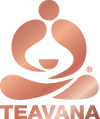Companies and Brands
Teavana Sets IPO Terms, Yet Not In Favor of Shareholders (TEA)
Published:
 Teavana Holdings, Inc. has now set the terms for its pending initial public offering. The retailer of high-end tea’s and the peripheral market around teas has projected that it will sell 7,142,858 shares of common stock and the price per share will be between $13.00 and $15.00. The company has been approved to list our common stock on the New York Stock Exchange under the symbol “TEA.” This was an IPO we were greatly looking forward to up until we saw the proposed terms.
Teavana Holdings, Inc. has now set the terms for its pending initial public offering. The retailer of high-end tea’s and the peripheral market around teas has projected that it will sell 7,142,858 shares of common stock and the price per share will be between $13.00 and $15.00. The company has been approved to list our common stock on the New York Stock Exchange under the symbol “TEA.” This was an IPO we were greatly looking forward to up until we saw the proposed terms.
The book-runners in the offering are BofA Merrill Lynch and Goldman Sachs; other underwriters are listed as Morgan Stanley, Piper Jaffray, William Blair, and Stifel Nicolaus Weisel. The offering will come to more than 8.2 million shares if the underwriters exercise the overallotment option in full.
The company was founded in 1997. It has increased sales from $33.8 million in fiscal 2006 to $124.7 million in fiscal 2010 while it tripled its store base from 47 stores to 146 stores. In fiscal 2010, sales rose 38.2% over fiscal 2009 and its comparable store sales rose 8.7%. The net income in 2010 was $12.0 million, up 126.9% from 2009. In fiscal 2010, the company’s stores averaged sales per gross square foot of approximately $1,000.00.
Teavana offers more than 100 varieties of premium loose-leaf teas, authentic artisanal teawares and other tea-related merchandise. The company has 161 company-owned stores in 35 states and 19 franchised stores which are primarily in Mexico. It also operated the teavana.com website for online sales. Unlike coffee shops, the company claims to have an average transaction size of about $36.00. Teavana listed that the global tea market was comprised of about $56.6 billion in sales in 2009, citing the latest available estimates from Mintel.
We were very much looking forward to this IPO when it was first filed, but something has happened along the way. It seems that the Teavana team has decided to somewhat adopt the same model of some of the recent Web 2.0 offerings with a very low float at the IPO and with founder majority control long after the IPO. Of the 7.1+ million shares being offered, the company itself is only offering 1,071,429 shares and the selling stockholders are offering an additional 6,071,429 shares. On top of that, only about 15% of the authorized shares will be in the float as it lists its authorized share count as 38,040,518 shares.
As a result of the structure, founder and CEO Andrew Mack will beneficially own approximately 57.9% of the outstanding common stock, or 55.9% if the underwriters exercise their overallotment option in full. Additionally, a fund advised by Parallel Investment Partners will own about 19.9% of the outstanding common stock, or 19.2% if the underwriters exercise their overallotment option.
The implied market cap here is $532 million at the $14.00 per share mid-point. That is not really a problem on its own when considering the rest of the IPOs we have seen, but the notion that the float is so small, and that the founder and the financial backing fund own more than 70% of the float, and that only a small fraction of the shares coming to market are going to be for the benefit of the company all combine into a scenario that is just not very favorable for the shareholders at the initial public offering.
The full amended filing with additional terms is here.
JON C. OGG
Finding a qualified financial advisor doesn’t have to be hard. SmartAsset’s free tool matches you with up to 3 fiduciary financial advisors in your area in 5 minutes. Each advisor has been vetted by SmartAsset and is held to a fiduciary standard to act in your best interests. If you’re ready to be matched with local advisors that can help you achieve your financial goals, get started now.
Thank you for reading! Have some feedback for us?
Contact the 24/7 Wall St. editorial team.